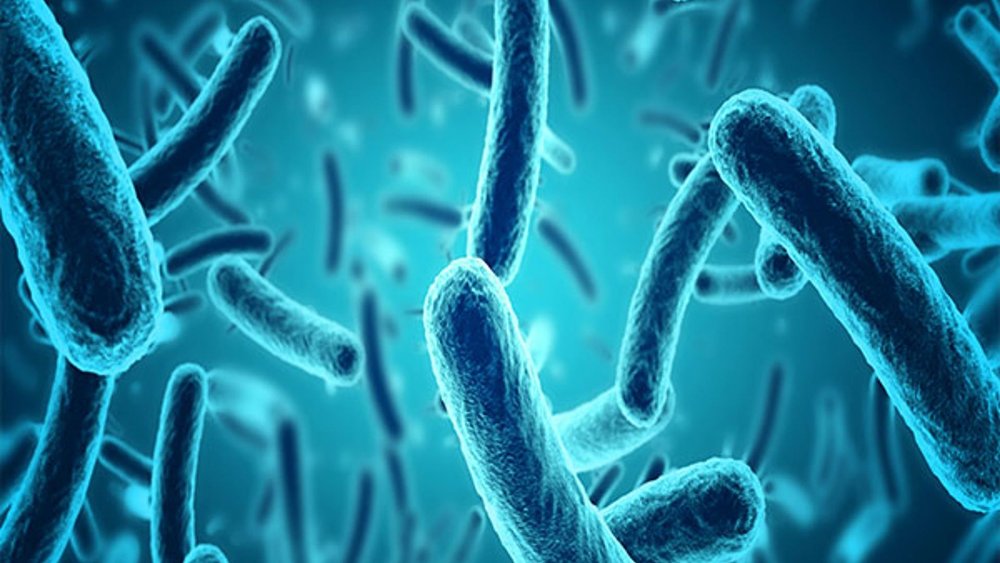Bacterial infection is caused due to the multiplication of a single strain of bacteria, on or inside the body. But in order to understand what exactly a bacterial infection is, one needs to have an understanding of what is bacteria first and then how does it cause infections in the human body.
Bacteria are single-celled microorganisms that are actively found in the air, on floors, surfaces, and on almost every bit of our surroundings. To add to it, bacteria are even present in living organisms including plants, humans, animals, and nearly every living being. As a matter of fact, bacteria actually contribute to carrying out various vital functions of the body and the environment. Maximum varieties of bacteria are harmless to the body, and the ones that do cause harm are the ones that usually invade the body, and when the immune system is unable to fight against them and provide protection, bacterial infections are triggered.
Types of Bacterial Infection
Bacterial infections are of various kinds. Depending on the kind of Bacteria that infects the body, Bacterial Infections may be classified into the following types:
1. Bacterial Skin Infections
Skin infections that are caused by gram-positive strains of Streptococcus and Staphylococcus cause bacterial skin infections. Different types of skin infections caused by bacteria are:
- Impetigo: Usually affects preschool children and causes oozing sores. Its bullous form causes large blisters, while nonbullous causes crusted and yellow appearance.
- Boils: These are deep infections in the skin that begin in the hair follicles. They are firm, red, deep, and tender bumps that grow until pus begins to collect underneath the skin.
- Folliculitis: This is another infection of the hair follicles that causes red, swollen bumps that are similar to pimples. Bacteria that cause this skin infection usually accumulate in unkempt pool areas and hot tubs.
- Cellulitis: Causes red and painful infection that is usually warm to the touch. It mostly infects the legs but may also appear on the other parts of the body.
2. Foodborne Bacterial Infections
Diarrhea, vomiting, abdominal pain, fever, chills, and nausea are common symptoms of food poisoning that are caused due to bacterial infections. Food handling which is unsanitary and unmanaged can also harbor food bacteria which causes certain kinds of illness. Seafood, eggs, raw milk, and unpasteurized dairy products can carry bacteria that cause food poisoning. Such bacteria that cause stomach infections and food poisoning include:
- Listeria Monocytogenes: This bacteria causes muscle ache, fever, and diarrhea. People of old age, infants, pregnant women, and people with a weak immune system are mostly at the risk of getting this infection.
- Salmonella: The symptoms usually last for 4-7 days and include abdominal cramps, diarrhea, and fever.
- Campylobacter Jejuni: Causes excessive diarrhea along with fever and cramps.
- Clostridium Botulinum: A life-threatening bacteria that produces powerful neurotoxins.
- Escherichia Coli: A diarrheal infection that often causes bleeding, and is accompanied by fever, vomiting, and abdominal cramps.
- Vibrio: May cause serious skin infections when comes in direct contact with an open wound. symptoms include diarrhea and fever.
3. Sexually Transmitted Bacterial Infections
STDs are usually asymptomatic and are caused by harmful bacteria that can cause harm to the reproductive system. Common STDs caused by bacterial infections include:
- Syphilis: Treponema Pallidum bacteria are responsible for causing this infection in both men as well as women. Untreated syphilis is potentially very dangerous and can even be life-threatening.
- Bacterial Vaginosis: This bacteria causes an overgrowth of pathogenic bacteria in the vagina.
- Chlamydia: Chlamydia Trachomatis causes infection in both men and women. This infection increases the possibilities of pelvic inflammatory disease in women.
- Gonorrhea: Neisseria Gonorrhea is responsible for causing this infection and is also termed as “clap” or “the drip.” it is commonly caused in both women and men. Gonorrhea also increases the chances of pelvic inflammatory disease (PID) in women.
4. Other Bacterial Infections
Bacteria can be harmful and affect any part of the body. Few other bacterial infections are:
- Otitis Media: Infection of the ear.
- Bacterial Meningitis: Infection of the meninges, the lining of the brain.
- Respiratory Tract Infection: Sore throat, pneumonia, bronchitis, and sinusitis are all respiratory tract infections.
- Urinary Tract Infection (UTI): Bacterial infection of the kidneys, bladder, urethra, or ureters.
Causes of Bacterial Infection
As discussed above, the transmission or invasion of bacteria into the system causes Bacterial Infections. The transmission can happen through contaminated air, water, infected people, or by consuming contaminated food or water.
Symptoms of Bacterial Infection
Depending on the affected area, Symptoms of Bacterial Infection include:
- Symptoms for bacterial pneumonia include:
- Fever
- Shortness of breath
- Sweating
- Chills
- Cough with phlegm
- Muscle pain
- Fatigue
- Chest pain while breathing
- Symptoms for Urinary Tract Infection
- Urine is thick and cloudy.
- Bleeding while urinating.
- Feeling of never being able to urinate completely.
- Burning or itching while urinating.
- Frequent urge to urinate.
- Pain and pressure in the lower back or abdomen.
- Common set of symptoms for Bacterial Infection
- Chills
- Fever
- Headache
- Discomfort and pain in the infected area.
Ayurvedic Treatment of Bacterial Infection
Ayurvedic Treatment of Bacterial Infection includes ayurvedic or home remedies, that effectively contribute to aiding bacterial infections. Following are a few of them:
- Tea Tree Oil: The oil possesses both anti-bacterial as well as antifungal properties. A diluted solution of tea tree oil along with coconut oil, almond oil, or olive oil may be applied over the affected area for a couple of days to observe beneficial results.
- Garlic: This is a perfect anti-bacterial agent which is loaded with several benefits. Its application, as well as consumption, greatly helps in curing various kinds of bacterial infections.
- Honey: Honey contains numerous antibacterial properties and is considered a natural antibiotic. Its consumption helps in treating various infections caused by bacteria.
- Ginger: This ayurvedic ingredient is known for its various anti-inflammatory and antibiotic properties. It is celebrated and one of the most favorite ingredients in Indian homes for almost all kinds of ailments. Bacterial infections are no exception to this practice. It helps control the growth of disease-causing bacteria.
Apart from these ayurvedic treatment measures and home remedies, observing a few precautions can also help in avoiding the risk of bacterial infections. These preventions include:
- Frequently wash your hands with warm soapy water, especially when in a medical or healthcare facility.
- Drink warm or hot water at least twice a day, as it helps in killing bacteria that might cause infections.
- Avoid sharing items of personal clothing, towels, bedding, razors, etc.
- Take extra to cover wounds and cuts.
Conclusion
It is certainly difficult to avoid certain kinds of bacterial infections, but practicing a few preventive techniques and adapting to a healthy lifestyle can benefit one in the long run. You can also consult with our expert who has vast experience and deep knowledge of Ayurveda. To learn more about other skin conditions, disorders, or infections, allergies, and disorders, log on to our website or get in touch with us at IAFA.








